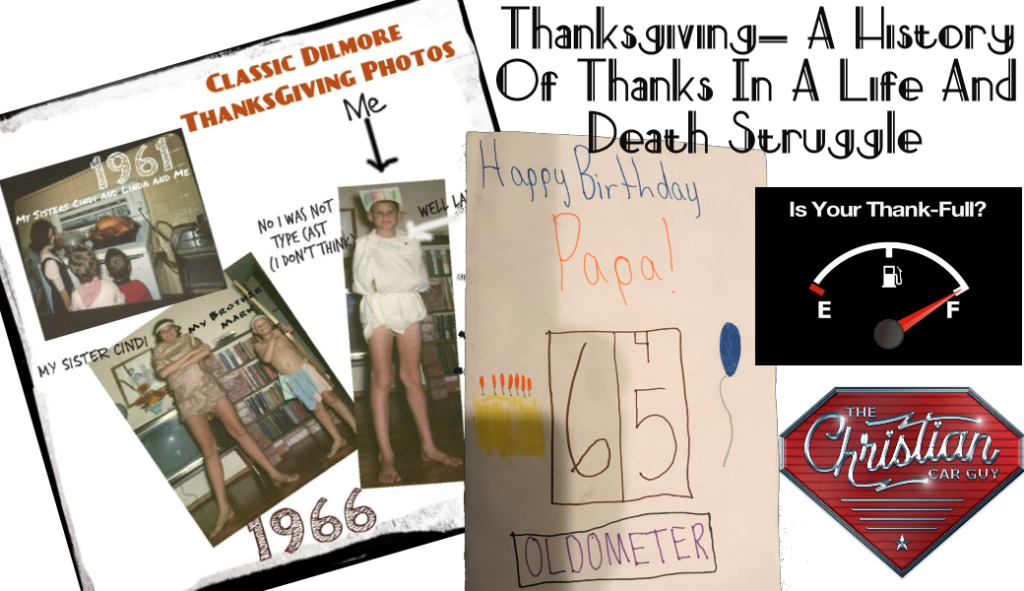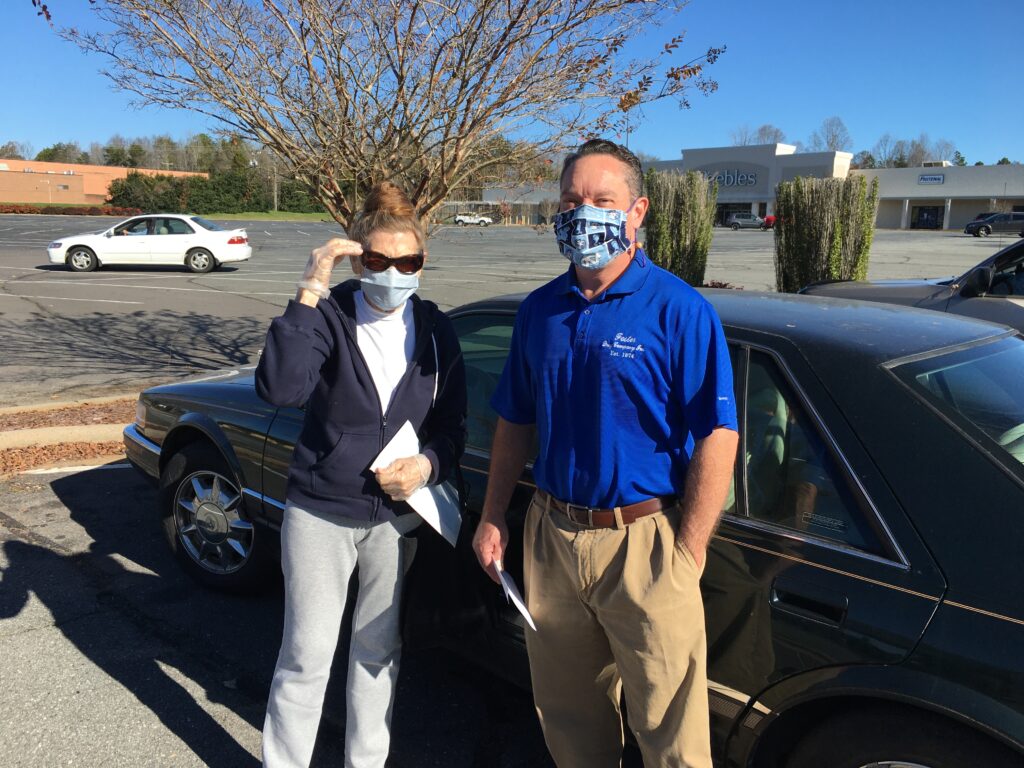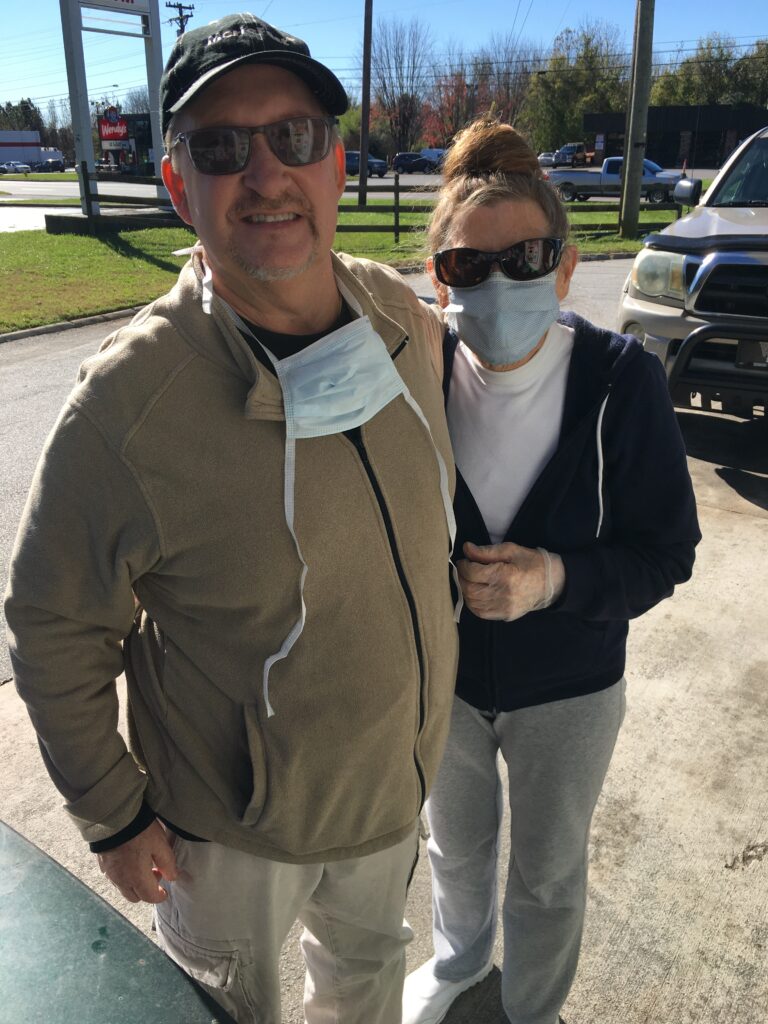
We at the Jesus Labor of Love are so grateful for all the donations this year so, so amazing seeing the generosity of God’s People. Below are the pictures of a dear, dear widow recieveing a car, with the donor, Scott our faithful volunteer and Me…. So thankful for all of the above and a chance to watch God work…


I always thought the first Official Thanksgiving at Plymouth colony was in 1621, Indians, corn, and all that, a good harvest after a brutal Winter 1620-1621 killing 14 of the 18 wives who came over on the Mayflower. The Article Below gives me much to ponder…
From: THE “FIRST THANKSGIVING” WE’VE FORGOTTEN
From the Pilgrims’ perspective, their first formal celebration of a Day of Thanksgiving in Plymouth came nearly two years later, in July 1623. We’re comparatively unfamiliar with it because, frankly, we get bored with the Pilgrims once they’ve carved the first turkey. We condense their story to three key events—the Mayflower Compact, the Landing at Plymouth Rock, and the First Thanksgiving—and quickly lose interest thereafter. In reality, the Pilgrims’ struggle for survival continued at least another two years.
This was partly due to the criminal mismanagement of the London financiers who bankrolled the colony. Only weeks after their 1621 harvest celebration, the Pilgrims were surprised by the arrival of the ship Fortune. The thirty-five new settlers on board would nearly double their depleted ranks. Unfortunately, they arrived with few clothes, no bedding or pots or pans, and “not so much as biscuit cake or any other victuals,” as William Bradford bitterly recalled. Indeed, the London merchants had not even provisioned the ship’s crew with sufficient food for the trip home.
The result was that, rather than having “good plenty” for the winter, the Pilgrims, who had to provide food for the Fortune‘s return voyage and feed an additional thirty-five mouths throughout the winter, once again faced the prospect of starvation. Fearing that the newcomers would “bring famine upon us,” the governor immediately reduced the weekly food allowance by half. In the following months hunger “pinch[ed] them sore.” By May they were almost completely out of food. It was no longer the season for waterfowl, and if not for the shellfish in the bay, and the little grain they were able to purchase from passing fishing boats, they very well might have starved.
The harvest of 1622 provided a temporary reprieve from hunger, but it fell far short of their needs for the coming year, and by the spring of 1623 the Pilgrims’ situation was again dire. As Bradford remembered their trial, it was typical for the colonists to go to bed at night not knowing where the next day’s nourishment would come from. For two to three months they had no bread or beer at all and “God fed them” almost wholly “out of the sea.”
Adding to their plight, the heavens closed up around the third week in May, and for nearly two months it rained hardly at all. The ground became parched, the corn began to wither, and hopes for the future began dying as well. When another boatload of settlers arrived that July, they were “much daunted and dismayed” by their first sight of the Plymouth colonists, many of whom were “ragged in apparel and some little better than half naked.” The Pilgrims, for their part, could offer the newcomers nothing more than a piece of fish and a cup of water.
In the depths of this trial the Pilgrims were sure of this much: it was God who had sent this great drought; it was the Lord who was frustrating their “great hopes of a large crop.” This was not the caprice of “nature,” but the handiwork of the Creator who worked “all things according to the counsel of His will” (Ephesians 1:11). Fearing that He had done this thing for their chastisement, the community agreed to set apart “a solemn day of humiliation, to seek the Lord by humble and fervent prayer, in this great distress.”
Edward Winslow, unknown artist, 1651
As Edward Winslow explained, their hope was that God “would be moved hereby in mercy to look down upon us, and grant the request of our dejected souls. . . . But oh the mercy of our God!” Winslow exulted, “who was as ready to hear, as we to ask.” The colonists awoke on the appointed day to a cloudless sky, but by the end of the prayer service—which lasted eight to nine hours—it had become overcast, and by morning it had begun to rain, as it would continue to do for the next fourteen days. Bradford marveled at the “sweet and gentle showers . . . which did so apparently revive and quicken the decayed corn.” Winslow added, “It was hard to say whether our withered corn or drooping affections were most quickened or revived.”
Overwhelmed by God’s gracious intervention, the Pilgrims immediately called for another providential holiday. “We thought it would be great ingratitude,” Winslow explained, if we should “content ourselves with private thanksgiving for that which by private prayer could not be obtained. And therefore another solemn day was set apart and appointed for that end; wherein we returned glory, honor, and praise, with all thankfulness, to our good God.” This occasion, likely held at the end of July, 1623, perfectly matches the Pilgrims’ definition of a thanksgiving holy day. It was a “solemn” observance, as Winslow noted, called to acknowledge a very specific, extraordinary blessing from the Lord. In sum, it was what the Pilgrims themselves would have viewed as their “First Thanksgiving” in America, and we have all but forgotten it.
As we celebrate Thanksgiving tomorrow, perhaps we might remember both of these occasions. The Pilgrims’ harvest celebration of 1621 is an important reminder to see God’s gracious hand in the bounty of nature. But the Pilgrims’ holiday of 1623—what they would have called “The First Thanksgiving”—more forthrightly challenges us to look for God’s ongoing, supernatural intervention in our lives.
Sounds like more drama than 2020 to me, more deaths per person and shortages way beyond toilet paper, yet, they knew God was with them and prayed together for 8 or 9 hours, more difficulty the more prayer is the way my life flows I’m afraid to say… But God!
The Picture above has my heart so thankful, God was there with me in the 60’s and My Grand Daughter’s Card for my Birthday, I truly Bless the Name of My God and Father, Son and Holy Spirit, who brought forth Bread / Jesus from the earth and an abundant life that He shared with me.
Enter into his gates with thanksgiving, and into his courts with praise: be thankful unto him, and bless his name.
Psalms 100:4



